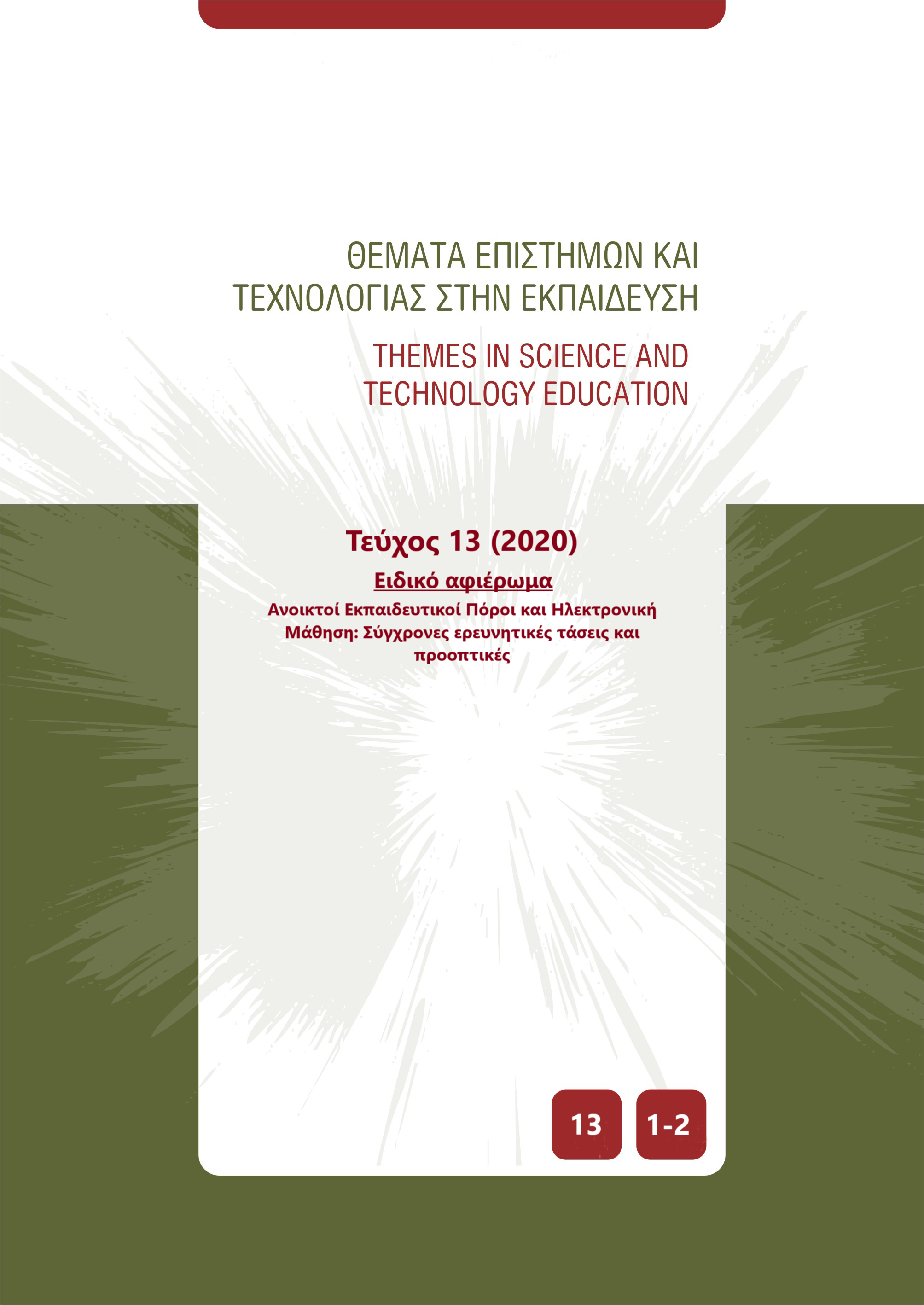Ανιχνεύοντας τη συμβολή της συμμετοχής σε ηλεκτρονική κοινότητα στη συγκρότηση διαστάσεων της επαγγελματικής ταυτότητας. Η ανακατασκευή της εμπειρίας εκπαιδευτικών Φυσικής Αγωγής

Περίληψη
Η εργασία έχει ως σκοπό την ανίχνευση της συμβολής της διετούς συμμετοχής πέντε εκπαιδευτικών Φυσικής Αγωγής στην ηλεκτρονική (η-) κοινότητα «Διδακτικά Σενάρια στη Φυσική Αγωγή» (η-ΔΣΦΑ) στη συγκρότηση δύο διαστάσεων της επαγγελματικής ταυτότητάς τους, μέσα από την ανακατασκευή της εμπειρίας τους. Ειδικότερα, στο πλαίσιο ενός ερευνητικού σχεδίου μικτών μεθόδων, αξιοποιούνται ποσοτικά δεδομένα από τα ψηφιακά ίχνη τους στο Edmodo, το οποίο υποστήριξε τη λειτουργία της η-ΔΣΦΑ και ποιοτικά δεδομένα μέσα από την αφήγηση της εμπειρίας της συμμετοχής τους σε αυτή. Από τη σύγκλιση των αποτελεσμάτων της ποσοτικής και ποιοτικής ανάλυσης συμπεραίνεται η συμβολή της συμμετοχής στη η-ΔΣΦΑ στη δυναμική συγκρότηση των μελετώμενων διαστάσεων της επαγγελματικής ταυτότητας των εκπαιδευτικών. Επιπλέον εξάγονται συμπεράσματα σχετικά με τη σημασία της αξιοποίησης του επιστημολογικού πλαισίου του αντικειμένου της ΦΑ κατά τον σχεδιασμό και την υβριδική μορφή λειτουργίας της η-ΔΣΦΑ. Η εργασία επιχειρεί να συμβάλλει παραδειγματικά στην αναδυόμενη περιοχή μελέτης της συγκρότησης της επαγγελματικής ταυτότητας εκπαιδευτικών σε ηλεκτρονικές κοινότητες μάθησης.
Λεπτομέρειες άρθρου
- Πώς να δημιουργήσετε Αναφορές
-
Κοτρέτσου Π., & Χατζηλεοντιάδου Σ. (2020). Ανιχνεύοντας τη συμβολή της συμμετοχής σε ηλεκτρονική κοινότητα στη συγκρότηση διαστάσεων της επαγγελματικής ταυτότητας. Η ανακατασκευή της εμπειρίας εκπαιδευτικών Φυσικής Αγωγής. Θέματα Επιστημών και Τεχνολογίας στην Εκπαίδευση, 13(1/2), 97–115. https://doi.org/10.12681/thete.39982
- Ενότητα
- Articles





